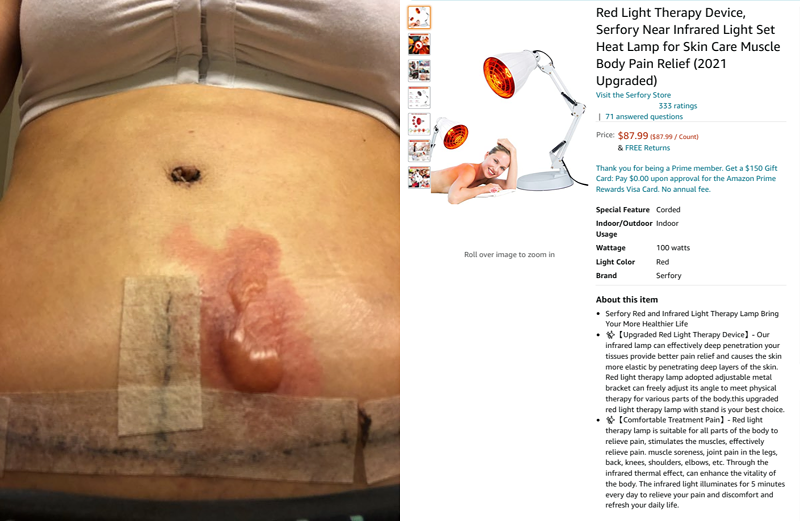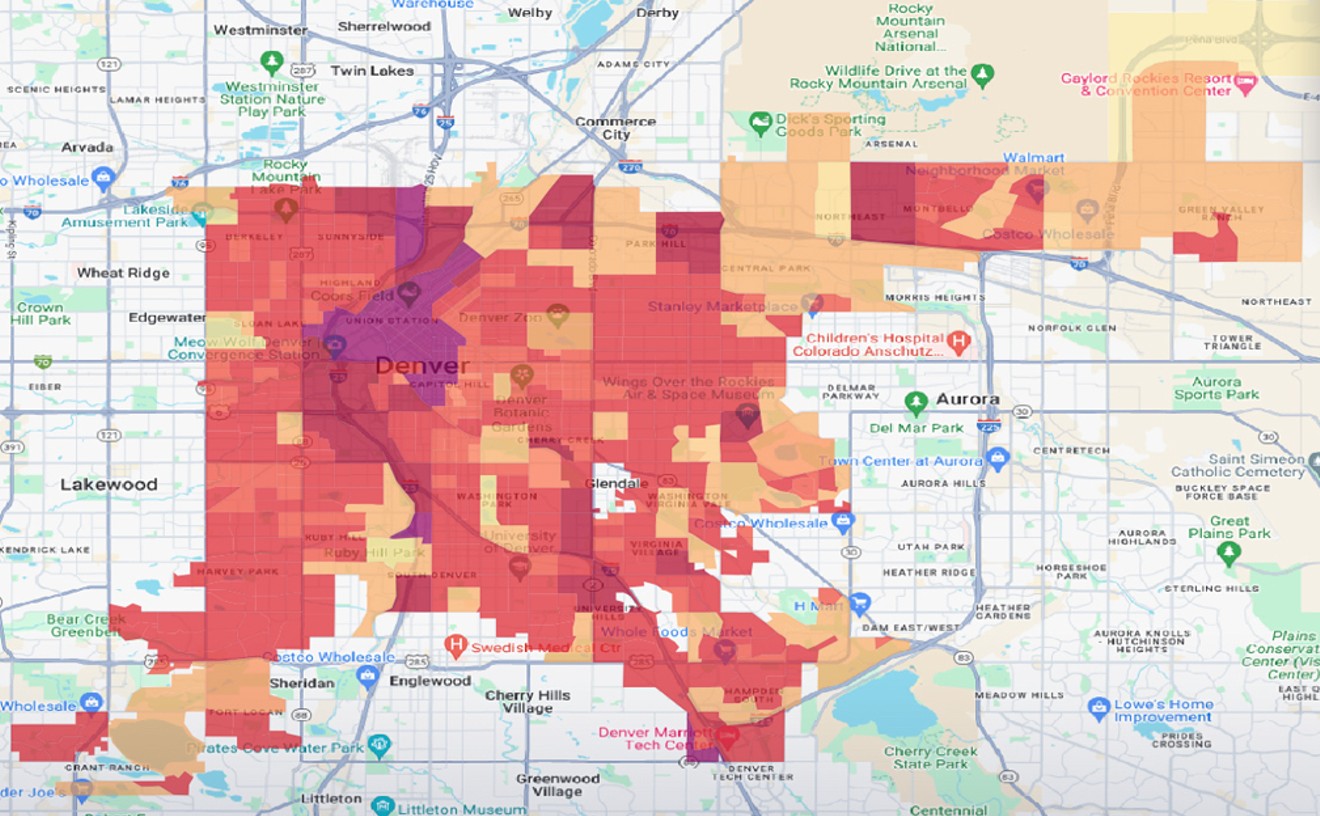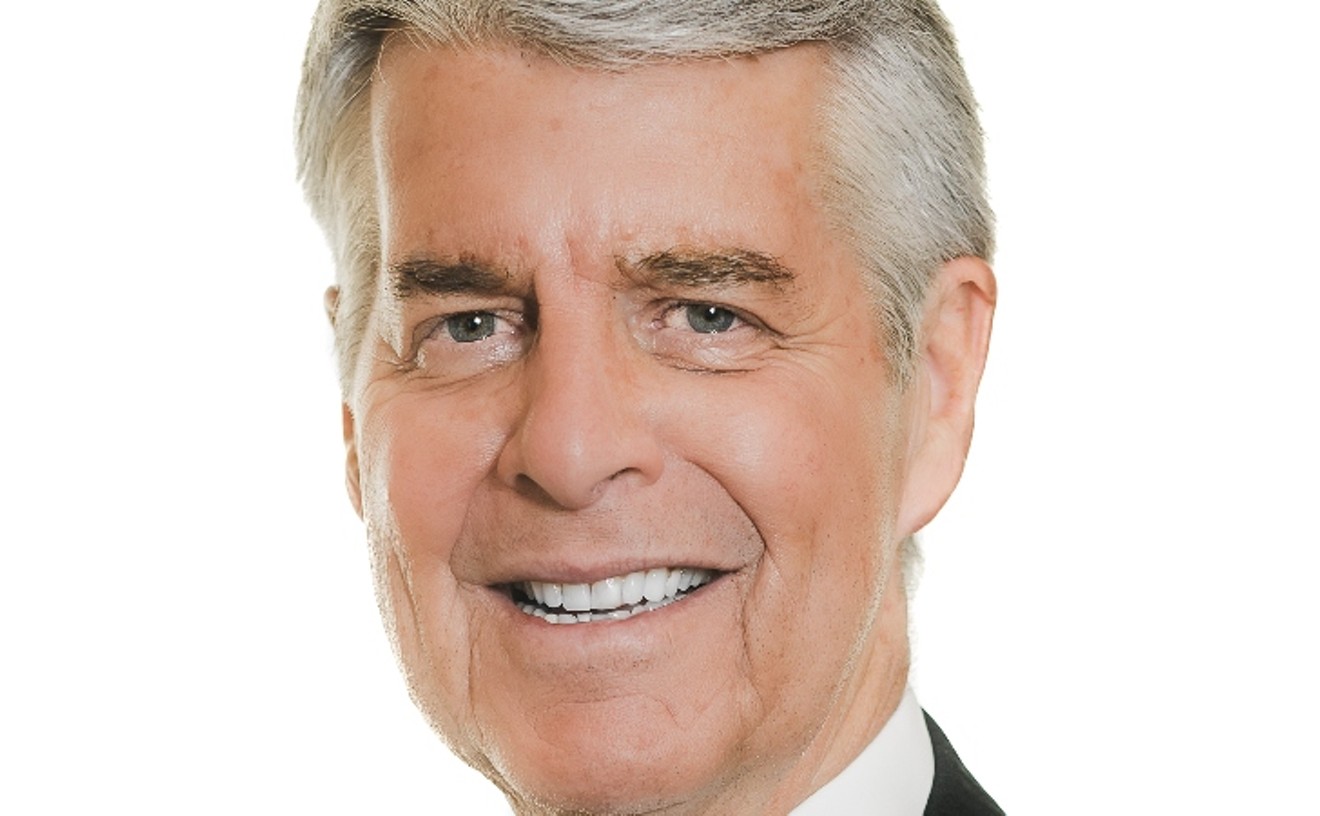A Lakewood mother is in the midst of a legal battle with the e-commerce goliath Amazon after a light therapy lamp she purchased on the platform allegedly left her with severe burns.
Amanda Jeffries, 43, received corrective surgery in June 2020 after developing abdominal separation from her two pregnancies. She spent seven years saving money to get the procedure. But just over a week after her surgery, Jeffries suffered a third-degree burn while using an infrared light therapy lamp as directed to help reduce the appearance of her surgical scars, according to her lawsuit filed last summer.
Today, following many treatments, Jeffries is left with $15,000 in medical expenses and a large scar down her stomach from surgically repairing the burn wound, says her lead attorney, Darrell Cochran. He argues that Amazon failed to ensure the safety of this product sold on its platform.
"People rely on Amazon to have the same sort of safety checks and balances as the brick-and-mortar stores it has replaced," says Cochran, a partner at the Pfau Cochran Vertetis Amala law firm. "Amazon is the responsible party when it sells products and makes money off of products that end up hurting American consumers."
Like more than 60 percent of the sales on Amazon, the light therapy lamp Jeffries purchased came from a third-party seller. For years, courts have debated who is liable for faulty products when they originate from independent sellers but are bought through Amazon. Amazon has maintained that it is not responsible for the actions of sellers, painting itself as a mere conduit between buyers and sellers.
In 2018, a Tennessee judge ruled that Amazon was not liable after a family's home burned down because a hoverboard they purchased on the platform spontaneously exploded. But in 2021, a California appellate court ruled that Amazon was liable for burns a woman sustained from extinguishing another fire caused by a hoverboard bought on the website.
The debate took a big step against Amazon on Tuesday, July 30, when the U.S. Consumer Product Safety Commission announced that Amazon is responsible for the recall of faulty or unsafe products sold on its platform by third parties. The safety regulator found over 400,000 hazardous products sold on Amazon, including defective carbon monoxide detectors, flammable children's pajamas and hair dryers that lack electrocution protection.
"Amazon’s argument that it is merely a 'third-party logistics provider' misrepresents the far-reaching control Amazon exercises," the decision reads. "Amazon cannot sidestep its obligations under the [Consumer Product Safety Act] simply because some portion of its extensive services involves logistics."
Cochran agrees, noting that Amazon profited from Jeffries purchasing the allegedly defective light therapy lamp, stored the lamps within its warehouse and shipped the lamp to Jeffries. In addition, Jeffries chose the lamp based partially on its high "star" rating on Amazon's website and the product's eligibility for Amazon Prime fast shipping.
The third-party business that sold the lamp has since "vanished," according to Cochran, who says it is common for foreign manufacturers to operate under false names so they can quickly close and reopen as new companies, often to avoid legal consequences. The believed manufacturers of the lamps, Serfory and Shenzhenshi, are listed as defendants in the lawsuit alongside Amazon.
"It's like a mutating virus," Cochran says. "This manufacturer is long gone. [Amazon] has not been helpful one lick. ... We do have a process where we try to go through the Hague Convention [to pursue foreign manufacturers]...but it takes years to accomplish that, even under the best set of circumstances."
Amazon did not respond to multiple requests for comment regarding Jeffries's lawsuit. In a statement following the safety commission's decision on Tuesday, Amazon said it plans to appeal.
Jeffries says she used the light therapy lamp as directed, keeping it an appropriate distance from her skin and using it for two-thirds of the suggested time. Still numb from surgery days prior, she says she felt no pain while using the lamp but noticed a large red mark on her stomach after finishing the ten-minute session.
In addition to Jeffries, the lawsuit names Wendy Hummer from Cuyahoga County, Ohio, as a plaintiff. Hummer similarly bought the light therapy lamp on Amazon and used it after an abdominal surgery, resulting in a third-degree burn and significant scar, according to the lawsuit. The instruction manual for the lamp did not warn that it could cause burns under normal operating conditions, nor did it instruct buyers not to use the lamp after surgery, according to the lawsuit.
"The harm to plaintiffs was caused by negligence," the lawsuit reads. "They had a duty to exercise reasonable care in their design, manufacture, distribution, retailing, and sale of the Heat Lamp, and they breached that duty."
The lawsuit was filed on May 8, 2023, in King County Superior Court in Seattle, where Amazon is based. Jeffries and Hummer request that the court award compensation for their medical expenses, legal costs, physical and emotional suffering, and permanent disfigurement.
Cochran says they are still awaiting a trial date, but he expects a ruling on the lawsuit within the next two months.
"I am confident that Washington courts will interpret the statute as including Amazon as a product seller," Cochran says. "Washington's policy is the protection of consumers."

Audio By Carbonatix
[
{
"name": "Air - MediumRectangle - Inline Content - Mobile Display Size",
"component": "12017618",
"insertPoint": "2",
"requiredCountToDisplay": "2",
"watchElement": ".fdn-content-body",
"astAdList": [
{
"adType": "rectangle",
"displayTargets": "mobile"
}
]
},{
"name": "Editor Picks",
"component": "17242653",
"insertPoint": "4",
"requiredCountToDisplay": "1",
"watchElement": ".fdn-content-body",
"astAdList": [
{
"adType": "rectangle",
"displayTargets": "desktop|tablet"
},{
"adType": "rectangle",
"displayTargets": "desktop|tablet|mobile"
}
]
},{
"name": "Inline Links",
"component": "18838239",
"insertPoint": "8th",
"startingPoint": 8,
"requiredCountToDisplay": "7",
"maxInsertions": 25
},{
"name": "Air - MediumRectangle - Combo - Inline Content",
"component": "17261320",
"insertPoint": "8th",
"startingPoint": 8,
"requiredCountToDisplay": "7",
"maxInsertions": 25,
"watchElement": ".fdn-content-body",
"astAdList": [
{
"adType": "rectangle",
"displayTargets": "desktop|tablet"
},{
"adType": "rectangle",
"displayTargets": "desktop|tablet|mobile"
}
]
},{
"name": "Inline Links",
"component": "18838239",
"insertPoint": "8th",
"startingPoint": 12,
"requiredCountToDisplay": "11",
"maxInsertions": 25
},{
"name": "Air - Leaderboard Tower - Combo - Inline Content",
"component": "17261321",
"insertPoint": "8th",
"startingPoint": 12,
"requiredCountToDisplay": "11",
"maxInsertions": 25,
"watchElement": ".fdn-content-body",
"astAdList": [
{
"adType": "leaderboardInlineContent",
"displayTargets": "desktop|tablet"
},{
"adType": "tower",
"displayTargets": "mobile"
}
]
}
]












